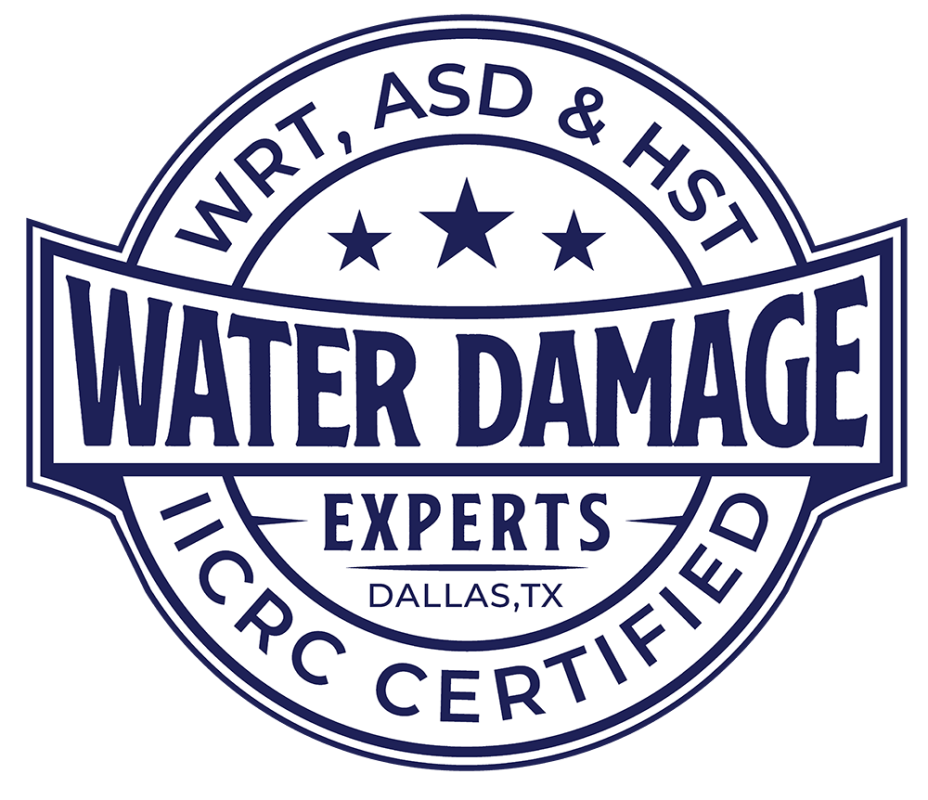As a renter, it’s essential to protect your belongings in case of unexpected accidents or damage. And one question that often arises is whether home renters insurance covers water removal services. In this article, we’ll delve into the intricacies of understanding home renters insurance and explore whether it includes coverage for water removal services.
Water damage can result from various causes, such as burst pipes, leaks, or flood incidents. These incidents can lead to significant property damage and require professional water removal services to mitigate the loss. But is this type of service covered by your home renters insurance policy?
By understanding the specific provisions and coverage of your policy, you can ensure that you are adequately protected in the event of water damage. We’ll examine the common types of insurance coverage and the factors that determine whether water removal services are covered. Stay tuned as we shed light on this important aspect of home renters insurance.
What is home renters insurance?
Home renters insurance, also known as tenant’s insurance or renter’s insurance, is a type of insurance policy that provides coverage for individuals who rent their living space, such as an apartment, condominium, or house. Unlike homeowners insurance, which covers the structure of the property, renters insurance focuses on protecting the renter’s personal belongings and liability.
This type of insurance policy is designed to safeguard renters in the event of unexpected incidents, such as theft, fire, or natural disasters. It typically covers the cost of replacing the renter’s personal property, including furniture, electronics, clothing, and other valuables, in the event of a covered loss. Additionally, renters insurance often includes liability coverage, which can protect the renter in case someone is injured while on the rented property or if the renter is held responsible for damage to the landlord’s property.
Obtaining home renters insurance is generally recommended, as it provides an important layer of financial protection for renters. It can help cover the cost of replacing personal items or provide liability coverage in the event of an unexpected incident, which can be especially crucial for those who do not own the property they are living in. By understanding the benefits and coverage provided by home renters insurance, renters can ensure they are adequately protected and prepared for potential risks.
Coverage provided by home renters insurance
Home renters insurance policies typically include several key coverage components to protect the renter and their belongings. The most common types of coverage provided by home renters insurance include:
Personal property coverage: This coverage protects the renter’s personal belongings, such as furniture, electronics, clothing, and other valuables, in the event of a covered loss, such as theft, fire, or natural disaster. The policy will typically provide reimbursement for the cost of replacing these items, up to the policy’s limit.
Liability coverage: Renters insurance includes liability coverage, which can protect the renter in case someone is injured while on the rented property or if the renter is held responsible for damage to the landlord’s property. This coverage can help cover legal fees and any resulting settlements or judgments.
Additional living expenses: If the rented property becomes uninhabitable due to a covered loss, such as a fire or natural disaster, renters insurance may provide coverage for additional living expenses, such as the cost of temporary housing and meals, until the property is repaired or the renter can return.
The specific coverage provided by a home renters insurance policy can vary depending on the insurance provider, the policy’s terms and conditions, and the renter’s chosen coverage limits. It is important for renters to carefully review their policy and understand the coverage they have in place to ensure they are adequately protected.

Water damage and home renters insurance
Water damage is a common concern for renters, as it can occur due to a variety of reasons, such as burst pipes, leaks, or even natural disasters like floods. When water damage occurs in a rented property, it can lead to significant damage to the renter’s personal belongings, as well as potential issues with the landlord’s property.
Renters insurance policies typically provide coverage for water damage, but the extent of the coverage can vary. Some policies may cover water damage caused by sudden and accidental incidents, such as a burst pipe or a leaking appliance, while others may exclude coverage for water damage caused by floods or other natural disasters.
It is important for renters to understand the specific water damage coverage provided by their home renters insurance policy. This includes understanding the policy’s deductibles, coverage limits, and any exclusions or limitations related to water damage. By being aware of the coverage details, renters can ensure they are prepared to handle water damage incidents and minimize the financial impact on their personal belongings.
Understanding water removal services
When water damage occurs in a rented property, the immediate priority is to mitigate the damage and prevent further deterioration of the affected areas. This is where water removal services come into play.
Water removal services are professional services that specialize in the extraction and removal of standing water, as well as the drying and dehumidification of the affected areas. These services are typically provided by companies that specialize in water damage restoration and cleanup.
The process of water removal typically involves the use of specialized equipment, such as high-powered pumps, dehumidifiers, and air movers, to effectively remove the water and dry the affected areas. Water removal services may also include the removal of any damaged or contaminated materials, such as carpeting, drywall, or insulation, to prevent the spread of mold or other water-related issues.
Does home renters insurance cover water removal services?
The coverage for water removal services under a home renters insurance policy can vary depending on the specific policy and the circumstances surrounding the water damage. In general, home renters insurance may provide coverage for water removal services in the following scenarios:
- Sudden and accidental water damage: If the water damage is caused by a sudden and accidental incident, such as a burst pipe or a malfunctioning appliance, the home renters insurance policy may cover the cost of water removal services. This type of coverage is typically included in the personal property or dwelling coverage portion of the policy.
- Covered perils: If the water damage is a result of a covered peril, such as a fire or a natural disaster, the home renters insurance policy may provide coverage for water removal services as part of the overall coverage for the incident. This is often included in the additional living expenses or debris removal coverage.
However, it’s important to note that home renters insurance policies may have exclusions or limitations when it comes to water damage coverage. For example, some policies may exclude coverage for water damage caused by floods, sewer backups, or gradual leaks. In such cases, the renter may need to purchase additional coverage, such as flood insurance or sewer backup coverage, to ensure that water removal services are covered.

Factors that may affect coverage for water removal services
When it comes to the coverage for water removal services under a home renters insurance policy, there are several factors that may impact the extent of the coverage:
- Cause of water damage: As mentioned earlier, the cause of the water damage can play a significant role in determining whether the policy will cover the cost of water removal services. Sudden and accidental incidents are more likely to be covered, while gradual leaks or floods may be excluded.
- Policy limits and deductibles: The coverage limits and deductibles of the home renters insurance policy can also affect the coverage for water removal services. The policy may have a specific limit for water damage-related expenses, and the renter may need to pay a deductible before the coverage kicks in.
- Mitigation efforts: The insurance provider may also consider the renter’s efforts to mitigate the water damage and prevent further deterioration. Prompt action and documented mitigation efforts can help strengthen the case for coverage of water removal services.
- Property condition: The overall condition of the rented property may be a factor in determining the coverage. If the water damage is a result of poor maintenance or pre-existing issues, the insurance provider may be less inclined to cover the cost of water removal services.
- Rental agreement: The terms and conditions of the rental agreement between the renter and the landlord may also play a role in the coverage for water removal services. Some rental agreements may specify the responsibilities of the landlord and the renter in such situations.
By understanding these factors, renters can better navigate the complexities of their home renters insurance policy and ensure that they are prepared in the event of water damage in their rented property.
Steps to take if your home experiences water damage
If your rented property experiences water damage, it’s important to take immediate action to mitigate the situation and protect your personal belongings. Here are the steps you should consider taking:
- Notify the landlord: Inform your landlord about the water damage incident as soon as possible. This will allow the landlord to assess the situation and take appropriate actions, such as contacting a plumber or a water damage restoration company.
- Document the damage: Take photographs and videos of the affected areas to document the extent of the water damage. This documentation can be crucial when filing a claim with your home renters insurance provider.
- Secure the area: If possible, try to stop the source of the water, such as a burst pipe or a leaking appliance. This will help prevent further damage and minimize the spread of water.
- Contact your insurance provider: Promptly notify your home renters insurance provider about the water damage incident. Provide them with the necessary information, such as the cause of the damage and the estimated cost of repairs.
- Cooperate with water removal services: If your insurance provider authorizes the use of water removal services, work closely with the professional restoration company to ensure the proper extraction and drying of the affected areas.
- Maintain detailed records: Keep track of all the expenses related to the water damage, including the cost of water removal services, repairs, and any temporary living expenses. This documentation will be crucial when filing an insurance claim.
- Follow up with your insurance provider: Stay in regular communication with your insurance provider to ensure the timely processing of your claim and to understand the coverage and reimbursement process.
By taking these steps, you can help protect your personal belongings, minimize the extent of the water damage, and increase the likelihood of a successful insurance claim.
Additional coverage options for water damage
While home renters insurance may provide some coverage for water damage and water removal services, there may be situations where additional coverage is necessary. Here are some additional coverage options that renters can consider:
- Flood insurance: Standard home renters insurance policies typically exclude coverage for damage caused by floods. If you live in an area prone to flooding, you may want to consider purchasing a separate flood insurance policy to ensure you are protected.
- Sewer backup coverage: Some home renters insurance policies may not cover water damage caused by sewer backups or overflows. Sewer backup coverage can provide protection in such scenarios.
- Replacement cost coverage: Instead of actual cash value coverage, which takes depreciation into account, replacement cost coverage can provide reimbursement for the full cost of replacing your damaged personal belongings.
- Higher coverage limits: Increasing the coverage limits for personal property and additional living expenses can provide more comprehensive protection in the event of water damage and the need for water removal services.
- Specialized water damage endorsements: Some insurance providers may offer specialized endorsements or riders that provide additional coverage for water damage, including the cost of water removal services.
By exploring these additional coverage options, renters can tailor their insurance policies to better suit their specific needs and ensure they are adequately protected in the event of water-related incidents.

Tips for preventing water damage in your rental property
While home renters insurance can provide coverage for water damage and water removal services, it’s always better to take proactive steps to prevent water damage in the first place. Here are some tips for renters to help prevent water damage in their rental property:
- Regularly inspect plumbing: Carefully inspect the plumbing in your rental property, including pipes, faucets, and appliances, for any signs of leaks or wear and tear. Address any issues promptly to prevent future water damage.
- Monitor appliances: Keep a close eye on your washing machine, dishwasher, and other water-using appliances to ensure they are functioning properly and not causing any leaks or overflows.
- Identify and address potential problem areas: Look for areas in your rental property that may be prone to water damage, such as bathrooms, kitchens, or basements. Regularly check for signs of moisture or mold and address any issues immediately.
- Educate yourself on the rental property’s water systems: Familiarize yourself with the location of the main water shutoff valve and how to turn off the water in case of an emergency.
- Regularly clean gutters and downspouts: If your rental property has gutters and downspouts, make sure to keep them clear of debris to prevent water from accumulating and potentially causing damage.
- Consider water leak detection devices: Install water leak detection devices that can alert you to any water leaks, allowing you to address the issue before it escalates.
- Maintain renter’s insurance coverage: Regularly review your home renters insurance policy to ensure it provides adequate coverage for water damage and water removal services.
By taking these proactive steps, renters can significantly reduce the risk of water damage and minimize the potential need for costly water removal services.
Conclusion
Understanding the coverage provided by home renters insurance when it comes to water damage and water removal services is crucial for protecting your personal belongings and financial well-being. While home renters insurance may provide coverage for certain types of water damage, it’s essential to carefully review your policy’s terms and conditions to ensure you are aware of the specific coverage and limitations.
By being informed about the intricacies of water damage coverage, renters can take proactive steps to prevent water-related incidents and be prepared to handle them effectively if they do occur. This includes understanding the role of water removal services, exploring additional coverage options, and implementing preventive measures to safeguard your rental property.
Remember, the key to ensuring adequate protection is to stay informed, communicate with your insurance provider, and take the necessary actions to mitigate water damage and its consequences. By doing so, you can have peace of mind knowing that your home renters insurance policy has your back in the event of unexpected water-related incidents.

